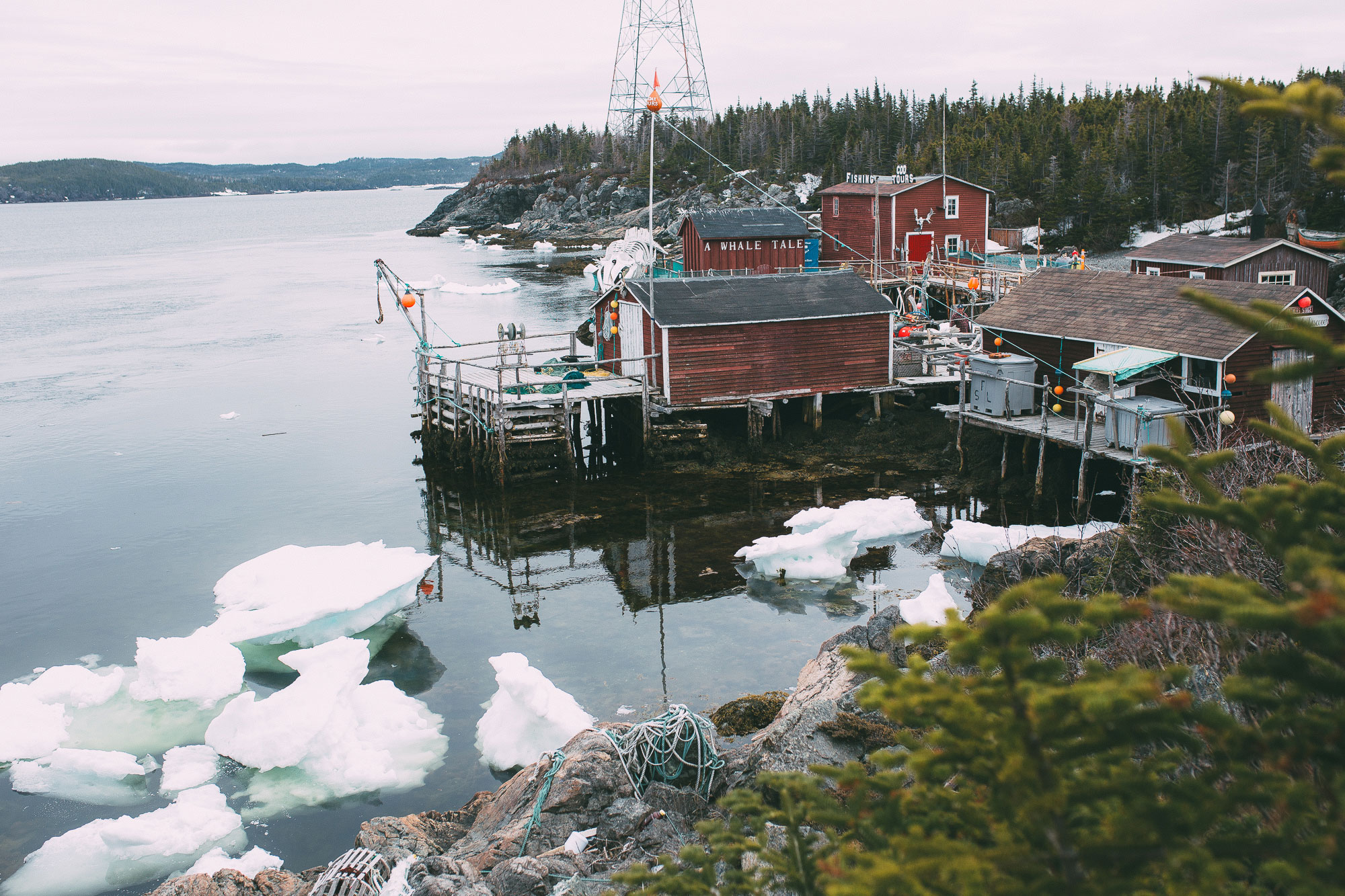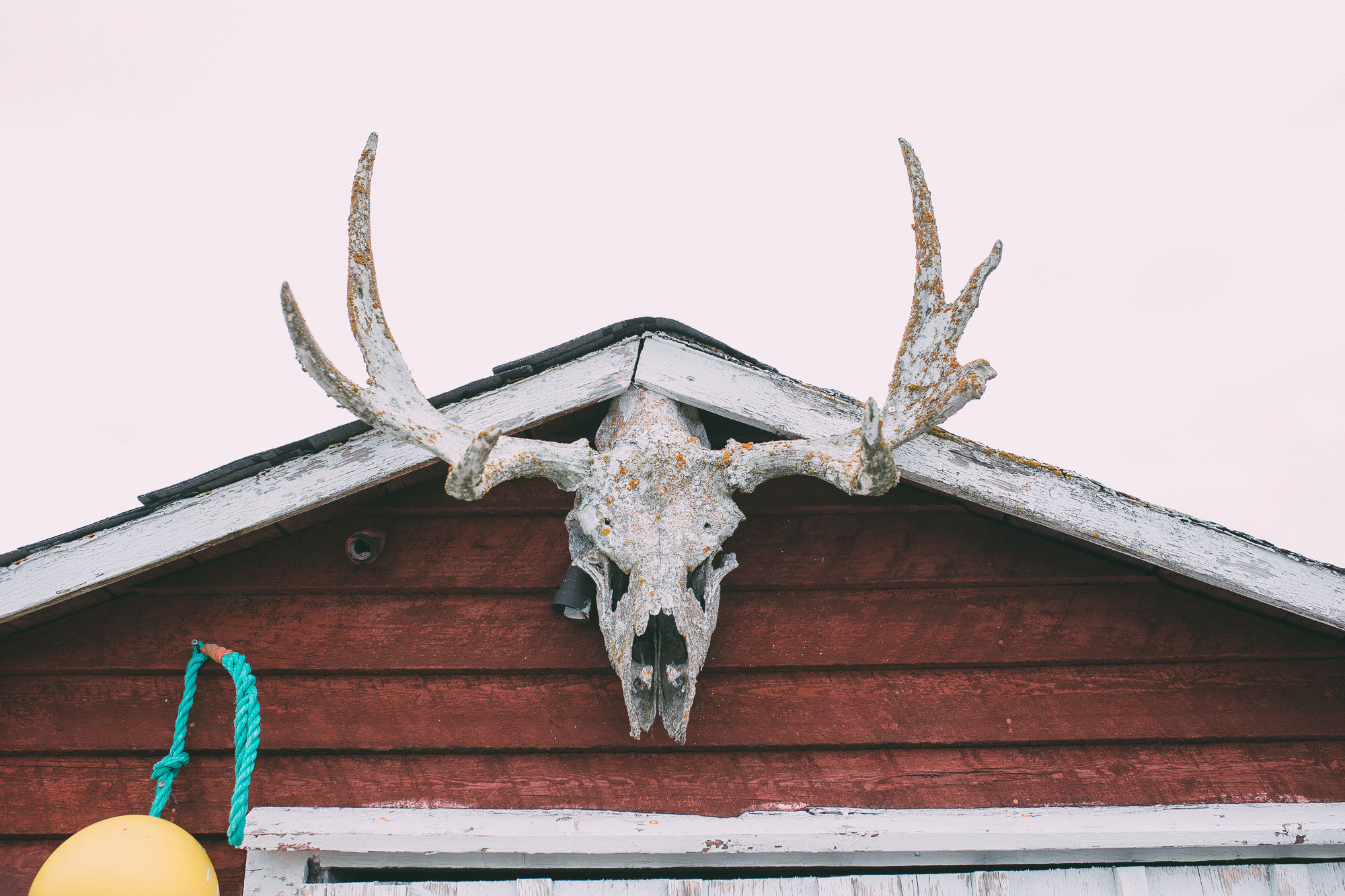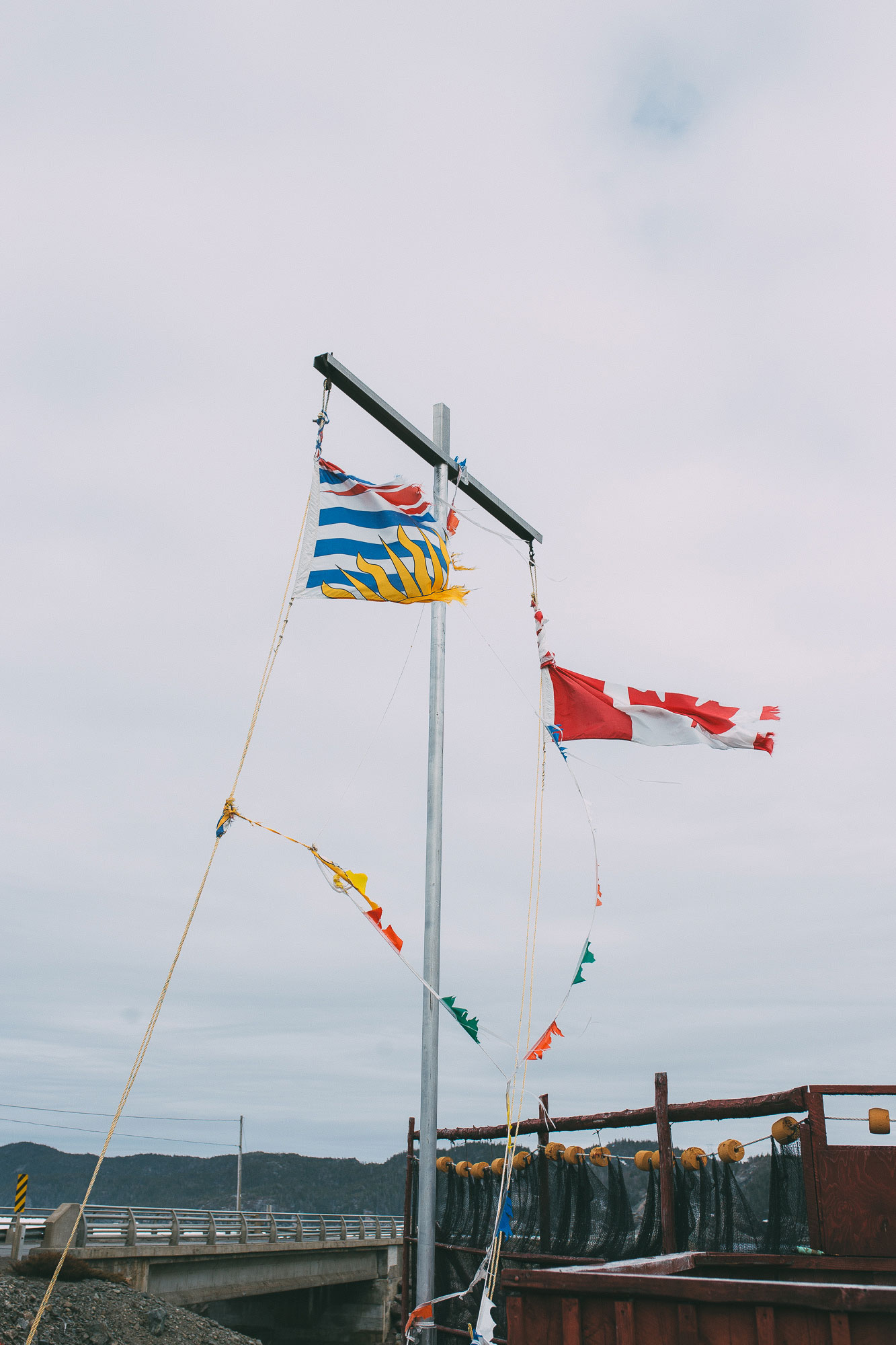“Yeah, there’s a lot of sea ice,” Terry Adey said as we stood on an old fishing wharf. A piece of ice about eight feet across had run aground in the shallow ocean just below us. “But it won’t last.”
I know this is sterotyping, but I hadn’t expected to hear much about climate change in the rural communities on the coast of Newfoundland. I figured like a lot of rural Canada, they had other issues to be concerned about. Infrastructure, fishing regulations, youth migration. The fact that right now a large number of fishing boats can’t get off the coast to fish because of the pack ice. Yet here was a local who named climate change and pulled no punches.
“We get icebergs when ice calves from Arctic ice sheets and glaciers,” he said, “and that’s happening faster than ever. Faster than scientists could have predicted. So we’re getting entire glaciers breaking apart and sending ice to the northeast coast of Newfoundland.” He gestured at the expanse of ice beyond the wharf, stretching out into the fog. “That’s what this is. This isn’t an accident. It’s the new norm. We’ll get more and more ice in the years to come, and then we’ll get none at all.”
When I first met him he had struck up a conversation with Ray, an old fisherman on the wharf. I didn’t catch the conversation in entirety because of their rough Newfoundland accents. (“We drop the ‘h’s where they belong,” he explained with a laugh, “And pick them up where they don’t.”) What I did understand was that Ray was asking him who he belonged to, and Terry responded by naming his father, uncle and grandfather. Ray nodded his head, listening, “Know him,” he said. “Know him.”
I wasn’t surprised because I’d witnessed parts of similar conversations, but it was beautiful nonetheless. Terry’s belonging was connected his family, and his family belonged to the land. To the ocean.



Terry knew intimately that the coast of Newfoundland is changing. When he was born there wasn’t yet a causeway to Twillingate Island; when he grew up the weather was different, the headlines were different.
“The Atlantic is dying, the fisheries are dying, and the culture of the outports with it. There’s no other way to put it. These people have seen their way of life almost disappear within the span of a generation. There’s people like Dave and Prime Berth working to preserve fishing culture and keep parts of it alive, but they’re few and far between.”
“I want more people to visit outport Newfoundland, to see it firsthand before it disappears.”